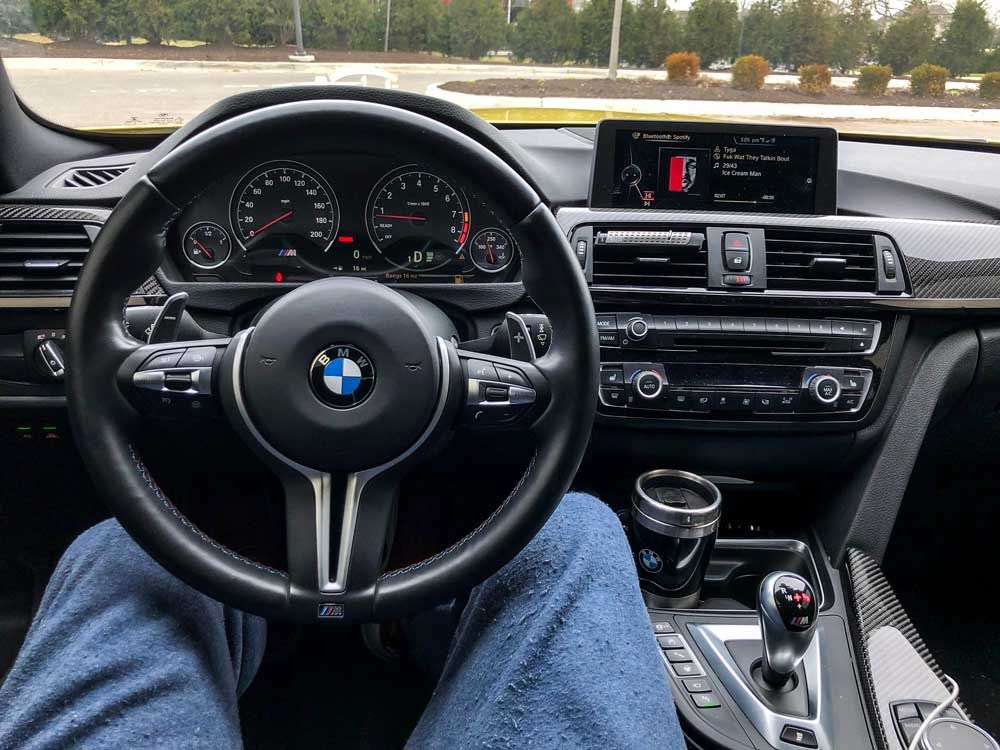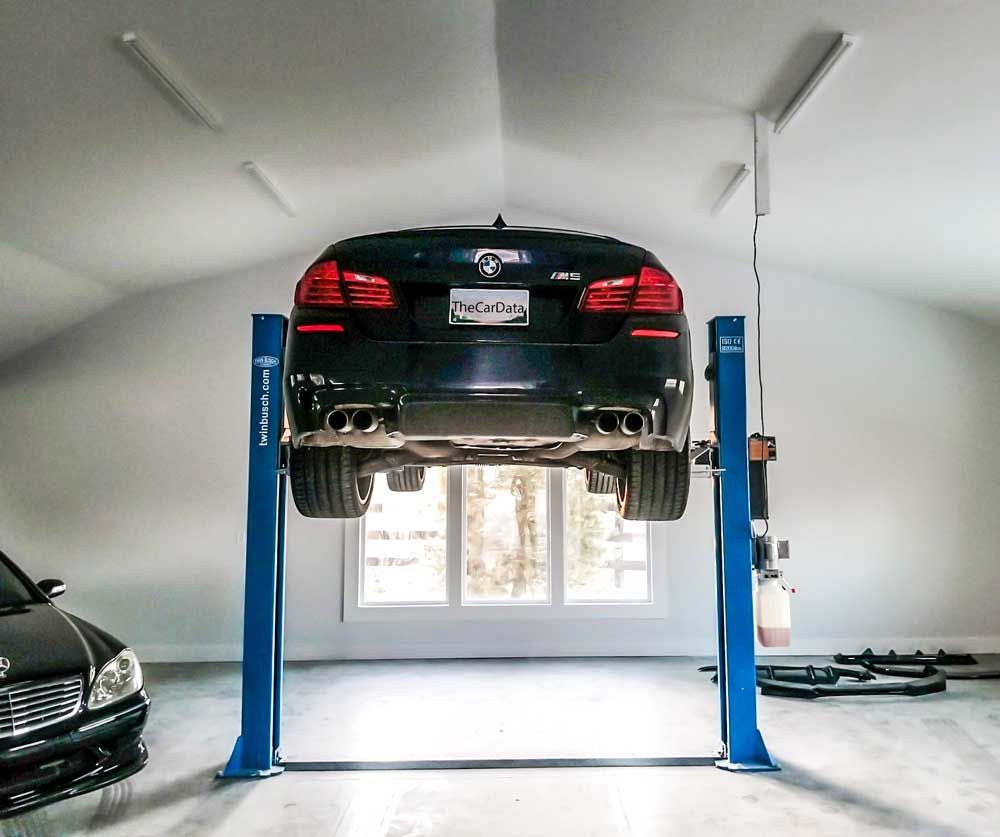Some of the links on this page may link to our affiliates. Learn more about our affiliate policies.
Last Updated: December 24, 2023
Buying a car can be an overwhelming experience, especially for first-time buyers. With so many factors to consider and options, getting lost in the process is easy. But fear not! In this ultimate car-buying guide, I'll walk you through everything you need to know before purchasing. From finding the right car to negotiating the price and finalizing the deal, I covered you with tips and strategies for a successful transaction.
To be completely transparent, I just recently went through a car-buying process. The dealer I purchased my F82 2018 BMW M4 from made me feel extremely pleased with the service I received. So much so that I put this piece together and wrote many more additional resources that might help you have an experience as pleasant as mine.
Factors to consider before purchasing a car
When purchasing a car, the price is often a crucial factor. Setting and sticking to a budget is important, weighing the cost against other priorities such as vehicle features or reliability. If opting for a used car, research its history and condition before making an offer.
In addition to budget considerations, determining what type of car and features you need is key. Think about your daily commute and any activities that require specific functionalities - do you need more cargo space? Better fuel economy? Advanced safety features? Make a list of must-haves versus nice-to-haves to narrow down your options efficiently.
Budget
When buying a car, it's crucial to determine your financial situation by setting a budget you can comfortably afford. This will help you narrow down your options and avoid overspending. If you are a W2 employee with a stable income, you can plan better than a contractor on a 1099 with an unstable income flow.
Additionally, remember to consider the maintenance and repair costs of the vehicle, especially if you're purchasing a used car. Researching common problems with the make and model can give insight into potential expenses. When I was younger, I used to think that "I can afford this car" meant that I could make the payment for it. But in reality, the affordability of a car is when fixing the largest repairs for it will not leave you hurting for cash.
Finally, factor in insurance premiums when calculating your total cost of ownership for each vehicle on your list. For instance, before moving to Michigan from Illinois, I didn't realize that my insurance payments would more than double due to Michigan's "no fault insurance" policies that are mandatory.
A helpful tool in creating a budget is using price guides to compare similar vehicles in terms of features and condition. Remember that while lower-priced cars may seem like good deals upfront, they could become more expensive due to costly repairs or poor fuel economy. By balancing price and long-term costs, you can decide which vehicle fits your lifestyle and financial goals.
Car type and features
Is this going to be your daily commuter or a weekend car? You may be looking at SUVs to go off-roading with your buddies. Perhaps your family got bigger, and now you are in dire need of a minivan. Knowing your vehicle's actual purpose will be key in your decision-making process.
Assessing your needs is crucial when selecting a car. Consider the cargo space and passenger capacity you require before deciding on a vehicle. Research different car models and brands to compare features, prices, and reliability. To make an informed decision, take time to test drive cars that meet your criteria for comfort level.
Whether purchasing new or used cars, following these steps in the car buying guide will ensure you choose a vehicle tailored to your needs. Refrain from being swayed by sales pitches; rely on factual information about each model's performance capabilities and consumer reviews of its reliability. With careful consideration of these factors, you'll find the perfect car at the right price for seamless driving enjoyment!
Fuel economy
Evaluate the gas mileage for each car you are interested in. Fuel economy is a crucial factor to consider when purchasing a vehicle. It can greatly impact the long-term price of owning and operating your car, especially if you plan on using it frequently or for commuting purposes. Research and compare the gas mileage of different cars that suit your needs, whether new or used.
Consider alternative fuel options like hybrid or electric cars. They may have higher initial costs but often offer significant savings over time due to their better fuel efficiency and lower emissions. Analyze fuel cost over time to calculate potential financial savings from choosing one of these environmentally-friendly options compared to traditional gasoline-powered cars.
By being mindful of fuel economy, buyers can save a considerable amount of money in the long run while making an eco-friendly choice with a minimal negative impact on the environment- which should also lead to pride and confidence in their purchase decision-making process.
If you are shopping for trucks or vans, it is natural that your vehicle will consume more fuel. However, you can choose from many larger new cars with decent gas mileage.
Where and how to find a good car

When it comes to finding a good car, several options are available. One of the most popular places to start is at a dealership. Dealerships offer various vehicle types and models, with financing options catering to various budgets. However, be prepared for haggling as prices can fluctuate based on negotiations.
Another option is online marketplaces such as Carfax or Autotrader. Here you'll find listings from dealerships and private sellers, giving you access to an extensive inventory without leaving your home. Research the seller's reputation before committing and take advantage of virtual tours or test drives.
Lastly, private sellers can provide some excellent offers but come with additional risks such as hidden damages or scams; always do proper due diligence when considering this route. Whether you choose dealerships, online marketplaces, or private sellers, always compare your options and do enough research before making any purchase decisions.
Dealerships
Understanding the different types of dealerships is crucial when purchasing a car. A manufacturer backs franchise dealerships, while independent dealerships are privately owned. Used car lots specialize in selling second-hand vehicles. Researching the dealership's reputation and customer reviews can provide insight into customer service and reliability.
Feel free to negotiate with the salesperson for a fair price - it could save you thousands of dollars in the long run. Remember, it's important to feel confident in your purchase decision and not rush into anything uncomfortable when buying from any dealership. Don't let the dealership's "specials" give you FOMO.
This particular criterion plays a massive role in picking the right car. There are a lot of listings that are great deals until you start doing the numbers. Shady dealers have hidden fees, do not want you to do a purchase inspection, are hesitant to provide vehicle history reports, and, often, are very pushy.
The dealer I purchased the M4 from was texting me for over a week to ensure I was pleased with the service. That's something that a few dealers do. They were also extremely pleasant and continuously communicated throughout the process, especially since I was an out-of-state buyer.
Online marketplaces
When it comes to buying a car online, there are several things you need to keep in mind. Online marketplaces can be a great way to find your dream vehicle at an affordable price, but they can also be risky if you're not careful. Here are some tips for navigating online car sales:
- Comparing prices and features across multiple websites: Don't just settle for the first deal you come across. Do your research and compare prices and features from different sellers.
- Checking for any red flags in seller profiles or listings: Scammers often use online marketplaces to prey on unsuspecting buyers. Be sure to carefully review seller profiles and listings before making a purchase.
- Arranging a virtual inspection or test drive before making a purchase: While it might not be possible to physically inspect or test drive the vehicle, many sellers offer virtual inspections through video calls or detailed photos.
By following these guidelines, you'll avoid potential scams while finding the perfect car of your dreams on an online marketplace.
Private sellers
When buying a car from a private seller, there are certain precautions you should take to ensure the safety of the transaction. Here are some tips to follow when dealing with private sellers:
- Meeting in public places for safety reasons: Always meet the seller in a public place and bring someone with you for added security.
- Inspecting the car thoroughly before finalizing the deal: Check everything, including brakes, tires, lights, engine, and transmission.
- Asking for maintenance records and ownership history to ensure transparency: Request service records that indicate all repairs made on time and any accidents or damage previously incurred.
Following these steps can help protect your investment while ensuring you get what you paid for. When buying from a private seller, remember to be thorough and don't hesitate to ask questions about anything that seems unclear or suspicious.
Research the car's value
When researching the value of a car, there are several factors to consider. Begin by consulting online resources such as Kelley Blue Book and Edmunds to determine the vehicle's market value. Additionally, look at local listings to see what similar cars are selling for in your area. Remember to factor in additional features or upgrades that may affect the price.
Remember that this information is just one part of negotiating a fair price for your desired vehicle. By thoroughly researching beforehand, you'll better understand what you should pay and can confidently negotiate with dealerships or private sellers.
Tips for negotiating the price
When negotiating the price of a car, research is key. Knowing the true value of the car you're interested in can give you an upper hand during negotiations. Utilize online resources and be prepared to present your findings to the seller.
Being willing to walk away from a deal can also work in your favor when negotiating a price. If you're unsatisfied with the offer, please decline and continue shopping around for better deals politely. This tactic may prompt sellers to reconsider their pricing strategy and make a better offer.
Be willing to walk away
When negotiating for a car, always set a budget beforehand and stick to it. This will prevent you from overspending or being swayed by the seller's persuasive tactics. If the seller isn't willing to meet your price, don't hesitate to say no and walk away. Remember that there are always other cars out there, so take your time and find one that fits your budget.
It can be tempting to settle for a car just because you've spent hours negotiating with the seller. However, if they're unwilling to meet your reasonable offer or are trying to pressure you into making a decision quickly, it's essential to be prepared to walk away. Don't let emotions cloud your judgment - this is an important purchase that needs careful consideration. By being willing to walk away from a deal that doesn't work for you financially or otherwise, you can save yourself from future regrets and find the right car at the right price elsewhere in due course of time!
Consider financing options
When financing your car purchase, taking the time to research and compare interest rates from different lenders is crucial. Don't limit yourself to banks or credit unions - explore all available options. Additionally, getting pre-approved for a loan before you start shopping can give you a clearer idea of how much you can realistically afford.
While dealer financing may seem easy, it's important to research first. Dealer financing can come with higher interest rates and fees than other lenders. Therefore, take the time to compare offers and find the best deal that suits your needs and budget. Remember: being well-informed about your financing options will ultimately save you money in the long run.
I had used CapitalOne Auto Financing when the rates were still very low for buying used cars. Before I came to the dealership, I had already been pre-approved for the 2015 BMW 535i xDrive and could leverage the rate that I had from CapitalOne against the one that the dealer was trying to push me to agree with.
This part of the buying process heavily depends on your credit score. Therefore, if your credit score is fairly spotty and you risk getting into the subprime auto loan territory, you could hire a firm such as Lexington Law to help you fix your credit. When I say this, the money spent on such services will pay you back multiple times over due to you saving on auto loan interest alone.
Should You Lease or Buy a New Car?
When shopping for a new car, one of the most important decisions you'll make is whether to lease or buy. Both options have pros and cons, so it's important to consider your needs and budget before making a decision.
Leasing a car typically allows you to drive a newer vehicle with lower monthly payments, but you will not own the car at the end of the lease term. In contrast, buying a car means you'll have higher monthly payments but will eventually own the car outright.
If you value driving a new car every few years and want lower monthly payments, leasing may be your better option. However, if you plan on keeping the car long-term and want the freedom to make modifications or sell the car whenever you want, buying may be the better option.
Ultimately, the decision to lease or buy a car should be based on your financial situation and personal preferences. By taking the time to research your options and consider all factors, you can make an informed decision that you'll be happy with in the long run.
What are the advantages and disadvantages of buying a car with cash?
Buying a car with cash can offer several advantages, such as not worrying about monthly payments and interest rates. Additionally, you can negotiate a better deal with the dealer when paying in cash. Furthermore, you will own the car outright, so you can sell it whenever possible.
However, there are also potential disadvantages to buying a car with cash. Firstly, using a large sum of money to purchase a car can impact your financial situation negatively. Secondly, using cash rather than financing means that you won't be able to build your credit score through car payments.
Ultimately, buying a car with cash should be based on your financial situation and goals. If you have the funds to purchase a car outright and it won't negatively impact your finances, it could be a good option. However, financing may be a better choice if you need to build credit or are looking to invest your money elsewhere.
What are the advantages and disadvantages of buying a car through financing?
Financing a car means you'll be making monthly payments over some time. The primary advantage of financing is that you don't need to have a large sum of cash upfront. You'll also have the option to get a newer, more expensive car that you may not be able to afford if you were buying it outright. Additionally, financing a car can help you build your credit score if you make timely payments.
However, there are also some disadvantages to consider:
- Financing a car means that you'll be paying interest on the loan, which can add up over time.
- You may be subject to higher interest rates with a low credit score.
- You will only own the car once you've paid off the loan to sell it then.
Ultimately, the decision to finance a car should be based on your financial situation. If you have good credit and can afford the monthly payments, financing a car can be a good option. However, if you have a low credit score or prefer to own the car outright, it may be better to save and buy the car with cash.
What are the advantages and disadvantages of leasing a car?
Leasing a car can be an appealing option for those who want a new car without committing to a long-term purchase. Like any financial decision, there are both advantages and disadvantages to leasing a car.
Advantages:
- Lower monthly payments: When leasing a car, you only pay for the vehicle's expected depreciation during your lease term. This often results in lower monthly payments than financing a purchase of the same vehicle.
- No long-term commitment: Leasing a car typically involves a shorter-term commitment, usually 2-3 years. This makes switching to a new car or technology easier as it becomes available.
- Fewer maintenance costs: Most leases come with a warranty that covers regular maintenance costs, so fewer out-of-pocket expenses come with owning a car.
Disadvantages:
- No ownership: Unlike financing a purchase, you don't own the car when you lease it. This means you won't have the same equity or asset value as you would with a purchase.
- Mileage restrictions: Most leases have mileage restrictions, which can result in fees if you exceed the allotted amount. This can be a disadvantage for those who frequently travel long distances.
- Wear and tear fees: When you return a leased car, the dealership will inspect it for wear and tear. Any damage or excessive wear can result in additional fees you will be responsible for.
Leasing a car can be a good option for those who want a new car with lower monthly payments and minimal maintenance costs while having the flexibility to switch to a new car in a few years. However, it also means that you won't own the car and must abide by mileage restrictions and potential wear and tear fees.
When considering whether to lease or buy a car, weighing the advantages and disadvantages and deciding based on your financial situation and lifestyle needs are important. To me, leasing a car is almost equal to renting a car. The only difference is that the payment is lower, but you can't return it whenever you want.
The importance of a test drive
A test drive is an important step in the car-buying process that should not be overlooked. It allows you to evaluate the condition and features of a vehicle, as well as get a feel for how it handles on the road. During your test drive, observe any unusual sounds or vibrations that may indicate mechanical issues. Additionally, take note of how comfortable and safe you feel while driving.
The sound and feel of a vehicle can tell you a lot about its condition and suitability for your needs. By listening carefully to the engine, brakes, and suspension during your test drive, you can identify any potential problems before purchasing. Feeling how smoothly the car drives over different terrain at various speeds will give you an overall sense of whether it's right for you. Ultimately, taking time for this crucial step can help you make an informed decision when buying your next car.
Personal experience story: In 2022, when I was shopping for an F10 BMW 535i xDrive with an M-Sport package, I went to a local BMW dealer in Illinois who had a nice-looking 1-owner 5-series that looked exactly the way I would have liked it. It had all of the service records, was fully loaded, and was sold at a very reasonable price, which excited me to test drive.
When I started driving the vehicle, I felt it pulling to the right. After driving more, I realized that the gears weren't shifting as smoothly as I expected, even though the Sport mode was not on. When braking, the steering wheel would shake fairly harshly. The dealer assured me that it was a one-owner vehicle. Therefore, it was very well maintained, and the shaking might have only been present due to the car standing outside for too long.
I walked away, and I'm glad that I did. Because a few weeks later, I found the same one that was 2-owner but drove and sounded like new. No rattling, no shaking, no suspicious symptoms whatsoever. I still need to get it inspected (not advised to skip this part). However, the car never gave me real issues after purchasing it.
Check the car's condition and features during the test drive
Inspect the car's exterior thoroughly during the test drive to ensure no damages or signs of repair. Pay attention to any paint color or texture inconsistencies, which may indicate previous accidents that were not disclosed. Additionally, ensure all lights, blinkers, and windshield wipers are working properly before purchasing the car.
Test heating and air conditioning systems during your test drive to gauge their functionality. Turn them up high and note how long they take to reach comfortable temperatures and how strong the airflow is. Be bold and ask questions about maintenance history so you can feel confident in your purchase decision knowing what kind of upkeep has been done on these vital systems.
Listen to the car's sounds and feel the ride
When test-driving a car, it's important to pay attention to the sounds and feel of the ride. This can give you insight into the condition of the vehicle. Here are some things to keep in mind:
- Pay attention to engine noise or grinding sounds when accelerating
- Test brakes at various speeds to check for responsiveness
- Feel for any vibrations in the steering wheel or unusual handling
By taking note of these factors, you can ensure that you are making an informed decision when purchasing your first car. Don't be afraid to ask questions; take your time during the test drive!
Consider a pre-purchase inspection
Before purchasing a car, it's crucial to consider getting a pre-purchase inspection. Research certified mechanics in the area and schedule an appointment to inspect the vehicle's interior and exterior comprehensively.
During the inspection, test the car with your chosen mechanic to identify potential issues that may not be visible at first glance. This step can save you from costly repairs and ultimately give you peace of mind knowing you're making an informed purchase decision.
Finalizing the purchase
Review and sign the paperwork
When it comes to buying a car, the paperwork can be overwhelming. Before signing anything, take the time to read through all documents carefully. If you encounter confusing or unclear terms, don't hesitate to ask questions and seek clarification.
It's important to ensure that all information is accurate, including the purchase price and financing details. Double-check everything before signing on the dotted line. By taking these precautions, you can avoid potential headaches and feel confident in your purchase decision.
Finalizing the purchase of a car can be an exciting yet nerve-wracking experience. Before signing any paperwork, reviewing and understanding all the terms and conditions is important. Consider bringing in a third-party mechanic for a pre-purchase inspection to ensure no hidden issues with the vehicle. Once comfortable with everything, sign on the dotted line and get ready to hit the road.
After finalizing your purchase:
- Obtain insurance coverage before driving off the lot.
- Register your new ride with your state's Department of Motor Vehicles (DMV).
- Keep all paperwork organized in case you need it later on down the road.
Congratulations on your new car!
Get insurance and register the car
Contact insurance companies to receive quotes for auto coverage. Once you have a few options, consider your budget and needs when selecting a policy. Make sure the coverage meets all of your requirements before signing up.
After securing insurance, register your vehicle at the local DMV office. Ensure you bring all necessary documents, such as proof of ownership, identification, and insurance, to complete the registration process successfully.
Here are some key points to keep in mind while getting insured and registering your car:
- Contact multiple insurance providers
- Review policies carefully before making a decision
- Research discounts that may be available based on factors like age or driving record
- Have all necessary documents ready when visiting the DMV office
These steps ensure that you and your new car are properly protected.
Should I purchase an extended warranty?
Extended warranties are insurance policies for your products, and they promise to cover the cost of repairs or replacements in case of a malfunction or breakdown. While extended warranties can offer peace of mind, they are not always worth the cost.
Firstly, the cost of the extended warranty should be taken into account. In some cases, the cost of the warranty is nearly the same as the cost of repairing or replacing the product in question, and in these cases, the warranty is not worth the investment. Additionally, some warranties have deductibles or exclusions that could limit their usefulness.
Secondly, consider the reliability of the product. If you are purchasing a product with a reputation for being reliable, such as a high-end appliance or an established brand automobile, an extended warranty may not be necessary. However, an extended warranty might be a wise investment if you purchase a product with a history of problems or a lesser-known brand.
Lastly, consider your personal risk tolerance and budget. If you are someone who worries about potential problems and would feel more comfortable with the added protection of an extended warranty, it might be worth the cost. Alternatively, it might be best to skip the extended warranty if you have a tight budget and cannot afford the additional expense.
In conclusion, whether or not to purchase an extended warranty depends on several factors, including the cost of the warranty, the reliability of the product, and your personal risk tolerance and budget. It is important to carefully weigh the benefits and drawbacks before deciding. Researching and reading the fine print before purchasing or investing is recommended.
Car Buyers' Guide Bottom Line
In conclusion, buying a new car can be an exciting but overwhelming experience. However, taking the time to consider a pre-purchase inspection, reviewing and signing the paperwork carefully, and getting insurance and registering the vehicle can help you make an informed decision and protect your investment. Remember to stay organized and do your research to ensure that you have a positive car-buying experience.

Steven Dillon
Author
Steven is the founder and product tested for The Car Data, that has extensive knowledge in automotive industry. While most of his free time he participates in typical "car guy" activities, his passion for cars, data analytics, and tech, always has his looking for the next cool tool, software, trend, etc. to share with his audience on The Car Data or on his Instagram.





